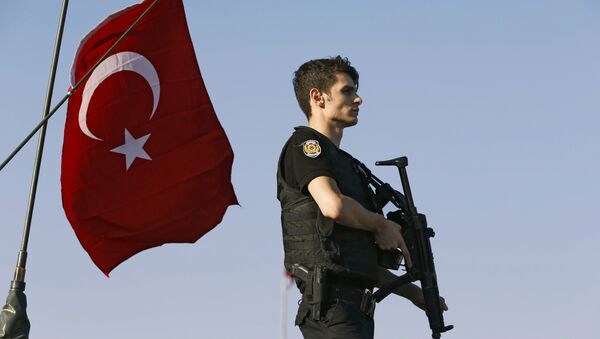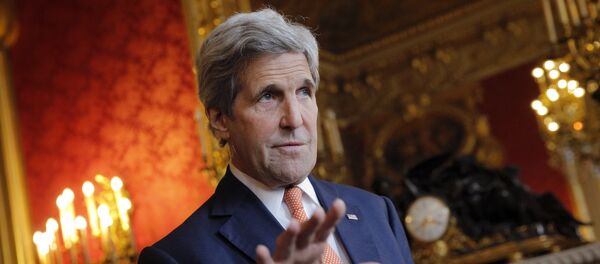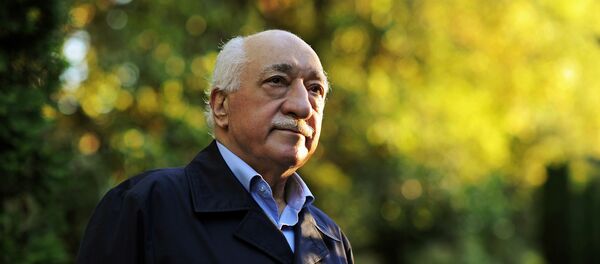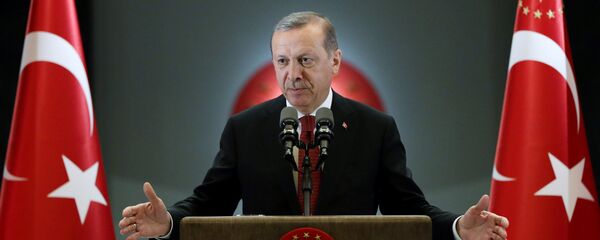"After the attempted coup the United States has lost confidence in Turkey as its reliable ally in the region. Three years ago, the Turkish government carried out purges in judicial institutions and the army ranks. Erdogan launched a crackdown on freedom of speech. No one in the US expected a military coup," Karim Hauser, a geopolitical analyst at the Arab House think-tank, told RIA Novosti.
Dilemma
Despite the fact that Ankara sometimes has strategic differences with Washington and Brussels, the US and the EU could not support the coup against the legitimate government, he said.
At the same time, if Erdogan turns even more authoritarian after the coup there will be a dilemma, Hauser said.
"What is better – to support a non-democratic coup or to deal with an increasingly authoritarian leader? The same situation took place in Egypt in 2013 when Mohammed Morsi was toppled," he said.
Gulen is to Blame?
Hauser also emphasized that it is not clear whether cleric Fethullah Gulen residing in the US and accused by Erdogan of staging the coup was actually involved in the attempt.
Prime Minister Binali Yildirim said that the country hiding the man linked to the coup is not Turkey’s friend. In turn, Erdogan called on US President Barack Obama to extradite the cleric.
"Kerry said that Washington is ready to cooperate with Erdogan if evidence against Gulen emerges. At the same time, Gulen rejected the accusations," the analyst said.
According to Hauser, this rift is rooted in the US’ long-standing support for the Kurdish Democratic Union Party (PYD). Turkey says the group is affiliated with the Kurdistan Workers’ Party (PKK), Ankara’s arch enemy.
Erdogan Has Changed
"He was a reformist prime minister. Then, he was an example of a moderate Islamist and democrat. Washington compared Turkey to Indonesia," the expert said.
However, three years ago, Erdogan launched a crackdown on freedom of speech, having oppressed opposition.
"Now, the Turkish society is divided over Erdogan’s policy. Many people criticize him for drifting away from the state principles laid down by Mustafa Kemal Ataturk in 1923," he explained.
He suggested that this was one of the factors that prompted the military to stage the coup. But those military officers were not prepared.
"This group of officers was supported neither by other personnel nor by public, including opposition groups. Opposition politicians don’t want another instance of martial law in Turkey," Hauser said.
Aftermath for Turkey’s Foreign Policy
"Its foreign policy will be less and less stable. Turkey has made efforts to normalize ties with Russia and Israel and reversed its stance towards Assad. But the lack of domestic stability could complicate the situation and have negative effect on the foreign policy," he said.
If tensions between the military and civil institutions deepen Turkish society will be split and rife with unrest.
In addition, Turkey has an open front against the Kurds. There are also over two million Syrian refugees in the country.
"This turmoil would deepen the instability with Turkish allies and finally would destabilize the Middle East region," Hauser concluded.






